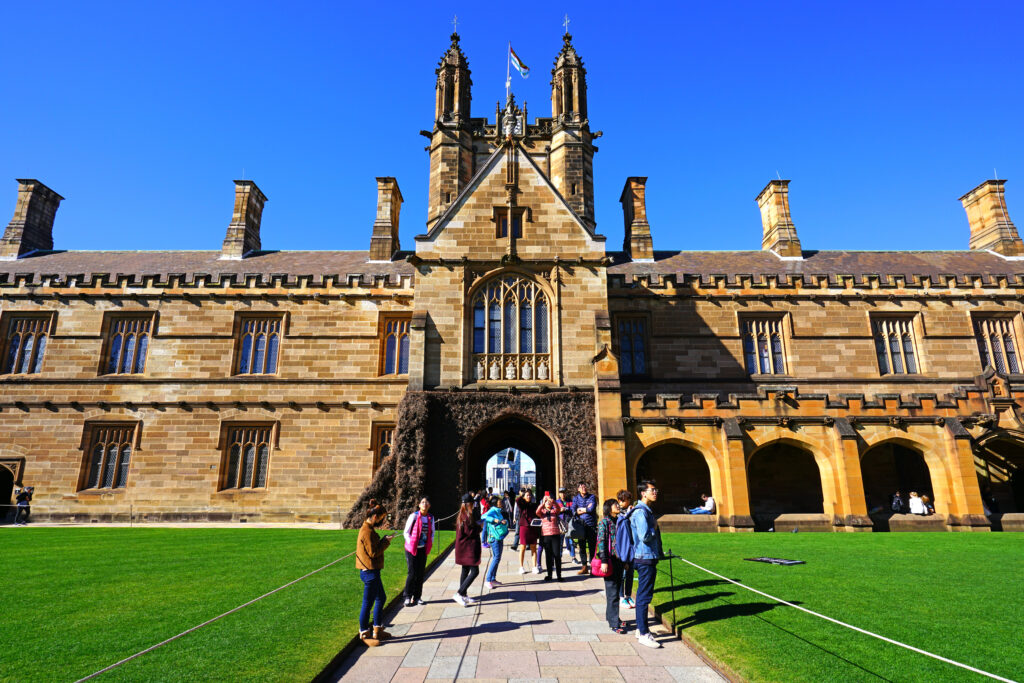Nurses are some of the most important pillars of the global healthcare system. In the face of COVID-19, they have worked selflessly to help communities combat the virus and save lives.
If you’re hoping to dedicate yourself to this noble profession, you’ve made a fantastic choice. Nursing is an incredibly gratifying career. Plus, it offers diverse employment opportunities and excellent earning potential!
By choosing to study in Australia, you will have access to some of the world’s best nursing schools and incredible career prospects. Are you wondering where to start on your journey as an international nursing student? Lucky for you, we’ve developed a handy guide to answer all of your questions on studying nursing in Australia.
Can international students study nursing in Australia?
Absolutely! International students can definitely study nursing in Australia. That said, there are some conditions you’ll need to meet if you want to go down this educational path. So, what are the requirements to study nursing in Australia?
In general, the main prerequisites include the successful completion of an Australian Year 12 qualification (or equivalent international secondary school qualification) and English language proficiency. If you are not a native English speaker, you’ll need to prove that you meet the requirements of the Nursing and Midwifery Board of Australia’s (NMBA) English language registration standard.
You can do this by completing an English language test. Several organisations even specialise in English language testing for healthcare professionals. Typically, these tests are written to reflect real workplace tasks and include relevant language skills.
While these are the general requirements you’ll need to meet, individual education providers will likely have additional or unique stipulations. For example, many institutions require nursing students to be vaccinated against a range of vaccine-preventable diseases in order to begin any practical placements.
Additionally, certain universities require applicants to have completed prerequisite subjects like mathematics and certain sciences. Be sure to visit each institution’s website to check the prerequisites for their nursing programs.
Why you should study nursing in Australia
Australia is home to some of the world’s most revered nursing programs. According to the QS World University Rankings by Subject 2020, an impressive 10 Australian universities ranked in the top 50 nursing schools in the world.
These institutions are located across Australia, even in regional areas. For instance, Charles Sturt University offers a Bachelor of Nursing at several regional campuses in New South Wales. Some of these campus locations include Albury-Wodonga, Bathurst, Port Macquarie and Wagga Wagga. These regional cities are fast-growing, offering many opportunities to international students. For instance, the Wagga Wagga Health Service recently underwent a $431 million redevelopment. The project included the development of a referral hospital called Wagga Wagga Base Hospital and a 24-hour Emergency Department. With this recent boost, employment prospects are extremely promising, which brings us to our next point.
Health Care and Social Assistance is Australia’s biggest employing industry, employing over 1.8 million people as of 2021. This number is anticipated to exceed 2 million by 2025. Australia is also home to an ageing population; by the year 2040, it is estimated that 20 per cent of Australians will be over the age of 65 and 1.2 million of the nation’s residents will be over the age of 85. As more people enter retirement and reach old age, the demand for nurses in Australia is expected to remain consistently high. So, if you decide to work in Australia after your studies, you’ll reap the benefits of diverse employment opportunities and job security.
Not to mention, the skills you’ll learn while studying nursing in Australia are transferable, meaning you can apply them just about anywhere in the world. In other words, studying nursing in Australia could be the first step in kickstarting your global healthcare career.
Where can you study nursing in Australia?
Wondering where to study nursing in Australia? You’ll be spoiled for choice. One of the best parts of choosing Australia as your study destination is the wide range of academic pathways available. You can get a diploma, bachelor’s, master’s or doctorate in nursing from a variety of institutions.
For example, if you’re hoping to pursue vocational education and training (VET), you can do that with TAFE or another VET provider. You may even have the option to specialise in areas like aged care, mental health, community health or emergency.
You can also head to university if you’re hoping to get a bachelor’s, master’s or doctorate degree in nursing. As you’ve already seen, these degrees are offered across several universities in Australia, many of which are internationally recognised for their exceptional nursing programs.
Additionally, many of them provide practical learning placements, which allow you to gain hands-on experience in a real work setting. For example, Charles Sturt University’s School of Nursing, Paramedicine and Healthcare Sciences offers Workplace Learning (WPL) placements. These placement opportunities take place in healthcare facilities like aged care homes, community health centres, schools and rural referral hospitals. Explore the frequently asked questions (FAQs) about nursing WPL placements here.
Keen to start exploring your options? Check out our full list of universities and TAFEs in Australia to get started. Here, you’ll find links to each institution’s website, where you can discover their course offerings and see if nursing is among them.
How long does it take to study nursing in Australia?
The answer to this question depends entirely on what kind of degree you choose to pursue.
If you opt for a diploma program with a TAFE institute or VET provider, you’re looking at roughly 18 months to two years of full-time study. If you’re hoping to get a bachelor’s degree with a specialisation in nursing, you’ll typically need to complete four years of full-time study. At the postgraduate level, master’s programs in nursing usually take one to two years of full-time study to complete. PhD programs, on the other hand, usually require three to four years of full-time study.
Can you study nursing online?
In certain circumstances, you can study nursing online. In fact, certain TAFE and VET nursing programs are specifically designed for online study. There are also multiple master’s programs in nursing that are administered entirely online. These programs are designed to both expand your knowledge and enhance your critical thinking and decision-making skills. Rather than completing labs in person, these programs feature state-of-the-art online simulations that mimic real-life medical scenarios.
However, international students on a student visa cannot study 100% online courses, per the visa requirements. Learn more about the student visa requirements on the Department of Home Affairs website.
How much does it cost to study nursing in Australia?
The costs associated with studying nursing in Australia will vary depending on your level of study and the institution you attend. At TAFE and other VET providers, the cost of study for international students pursuing a nursing degree ranges from AU$27,000 to $38,000 per year.
Similarly, the average annual indicative fee for an undergraduate degree in nursing at an Australian university is between AU$27,000 and $35,000 per year. At the postgraduate level, the annual indicative fee for nursing students is typically between AU$35,000 and $45,000 per year. Keep in mind that if you enrol in an online program and study in your home country, you have the opportunity to save some money because you won’t need to buy flights or pay as much for living expenses abroad (i.e. rent, utility bills, public transport).
Seeking some financial aid to help fund your studies? Fortunately, there are several scholarships available to international students in Australia. Check out any of our helpful resources on Australian scholarships to help with your applications:
- Top scholarships for international students
- How scholarships work in Australia
- How to earn a scholarship
You may also be eligible to apply for an education loan in Australia or through your home country.
What jobs are available for nursing graduates?
Because healthcare is such a booming industry in Australia, nursing graduates have several job opportunities available to them. They also have an array of options in terms of specialisations. Examples of specialisations include mental health, emergency and aged care.
Some of the most in-demand nursing positions in Australia are assistants in nursing (AIN), clinical nurses, enrolled nurses (EN) and mental health nurses. But the list doesn’t stop there; midwives, nurse educators, nurse managers, nurse practitioners and registered nurses (RN) are also consistently in demand in Australia.
What is the expected wage for a nursing graduate?
Most nursing graduates are paid between AU$60,000 and $65,000 per year. Charles Sturt University nursing graduates fall on the higher side of that range, with a median salary of $64,700.
However, your wage will vary depending on a few factors. These include your level of education, experience, whether you work in a public or private hospital, and specialisation. For example, an assistant in nursing will typically earn a lower wage than an RN or a nurse manager.
No matter your specialisation, your wages will typically increase the more experience you get. You can expect to see a slight bump in your pay with each passing year.
Keep in mind that these figures only represent average salaries. When you pursue a career in nursing, your earning potential goes far beyond average. For example, let’s say you go on to pursue a specialised or senior position, such as a nurse anaesthetist. The average salaries for this role fall between AU$105,000 and $130,000 per year. Similarly, orthopaedic nurses can earn up to AU$120,000 per year.
In short, as you advance through your career, you’ll have plenty of opportunities to increase your earnings and improve your financial wellbeing.





